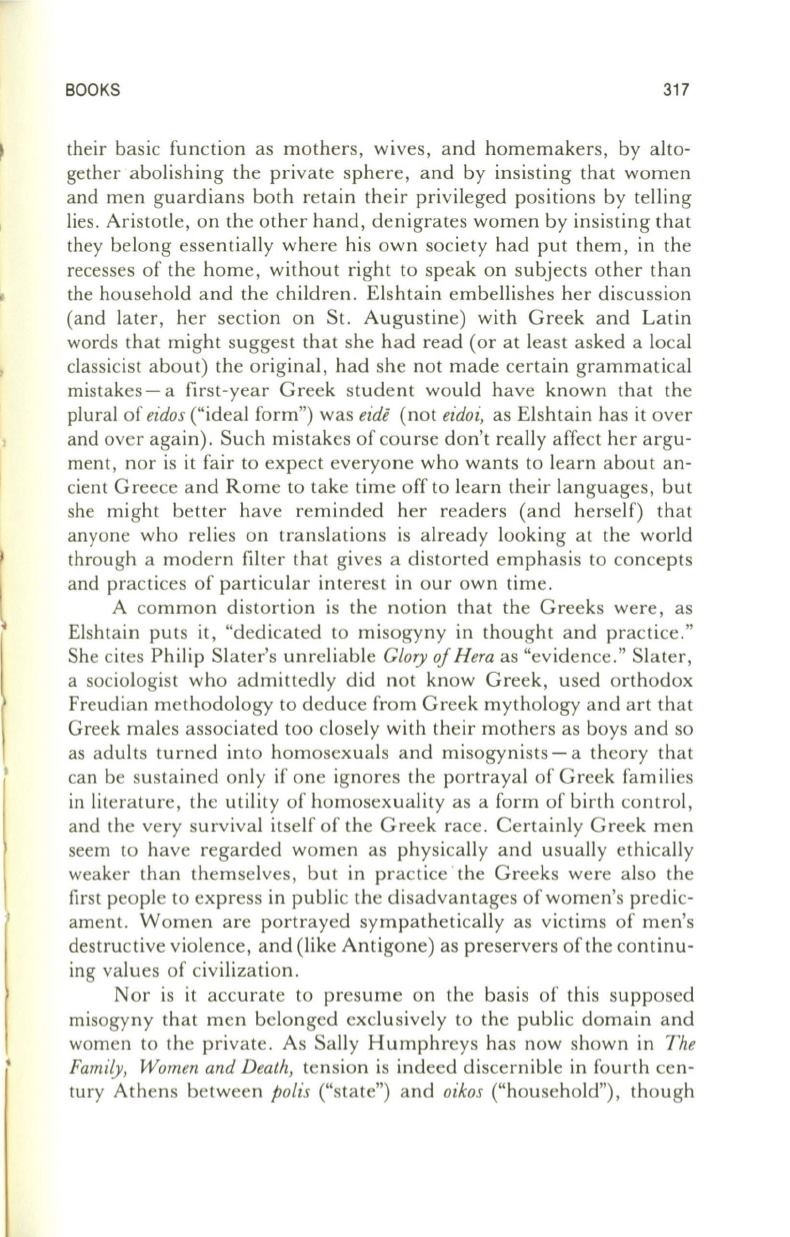
BOOKS
317
their basic function as mothers, wives, and homemakers, by alto–
gether abolishing the private sphere, and by insisting that women
and men guardians both retain their privileged positions by telling
lies . Aristotle, on the other hand, denigrates women by insisting that
they belong essentially where his own society had put them, in the
recesses of the home, without right to speak on subjects other than
the household and the children. Elshtain embellishes her discussion
(and later, her section on St. Augustine) with Greek and Latin
words that might suggest that she had read (or at least asked a local
classicist about) the original, had she not made certain grammatical
mistakes - a first-year Greek student would have known that the
plural of
eidos
("ideal form") was
eide
(not
eidoi,
as Elshtain has it over
and over again). Such mistakes of course don't really affect her argu–
ment, nor is it fair to expect everyone who wants to learn about an–
cient Greece and Rome to take time off to learn their languages, but
she might better have reminded her readers (and herself) that
anyone who relies on translations is already looking at the world
through a modern filter that gives a distorted emphasis to concepts
and practices of particular interest in our own time.
A common distortion is the notion that the Greeks were, as
Elshtain puts it, "dedicated to misogyny in thought and practice."
She cites Philip Slater's unreliable
Glory oj Hera
as "evidence." Slater,
a sociologist who admittedly did not know Greek, used orthodox
Freudian methodology to deduce from Greek mythology and art that
Greek males associated too closely with their mothers as boys and so
as adults turned into homosexuals and misogynists - a theory that
can be sustained only if one ignores the portrayal of Greek families
in literature, the utility of homosexuality as a form of birth control,
and the very survival itself of the Greek race. Certainly Greek men
seem to have regarded women as physically and usually ethically
weaker than themselves, but in practice ' the Greeks were also the
first people to express in public the disadvantages of women's predic–
ament. Women are portrayed sympathetically as victims of men's
destructive violence, and (like Antigone) as preservers of the continu–
ing values of civilization.
Nor is it accurate to presume on the basis of this supposed
misogyny that men belonged exclusively to the public domain and
women to the private. As Sally Humphreys has now shown in
The
Family, Women and Death,
tension is indeed discernible in fourth cen–
tury Athens between
polis
("state") and
oikos
("household"), though


